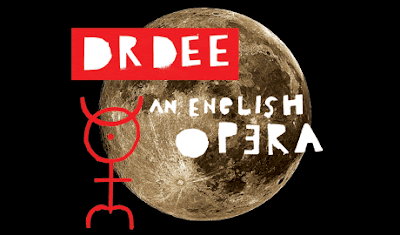 I've been trying to get over to the North Yorkshire Coast for ages, but hadn't managed to in the many years I've lived here. It's just a hair too far away for a day trip with small children. But with a VW Campervan at my disposal thanks to the lovely people at Jolly Campervans in Huddersfield (who even dropped it off and picked it up at our house), it was at last within my reach. And so it was that me and my partner packed the two kids - and the unbelievable volume of brightly coloured kid-and-baby gear even a weekend trip requires - into the van and headed East for a long weekend. Were we crazy to be taking a 3 year old and a 10-month old camping? Hmmm.
I've been trying to get over to the North Yorkshire Coast for ages, but hadn't managed to in the many years I've lived here. It's just a hair too far away for a day trip with small children. But with a VW Campervan at my disposal thanks to the lovely people at Jolly Campervans in Huddersfield (who even dropped it off and picked it up at our house), it was at last within my reach. And so it was that me and my partner packed the two kids - and the unbelievable volume of brightly coloured kid-and-baby gear even a weekend trip requires - into the van and headed East for a long weekend. Were we crazy to be taking a 3 year old and a 10-month old camping? Hmmm.While Mancunians traditionally go to the seaside towns of Lancashire and North Wales for their summer holidays, my resident Yorkshireman informs me that the North Yorks coast becomes like Leeds-on-Sea in summertime. For the simple reason that it was almost exactly due East of where we live, we opted for Filey, a small town near Scarborough and this was luckily a fantastic choice. We stopped off at Castle Howard for lunch (lush farm shop, very cool adventure playground) and rolled into the campsite by late afternoon. Filey Brigg Caravan Park is run by the council, tidy and spacious with sea views, and a five-minute walk from the unspoiled beach and the tidepools and rock formations of the Brigg. The small seafront is council-owned too, and maybe that's why it had quite an old fashioned feel to it. That and the fishing boats.
 Everything was scrupulously clean and family-oriented with a small funfair and a few stalls selling rock and fresh seafood. I even ate cockles, which is apparently an important part of the traditional seaside holiday here in the UK. The last time I encountered cockles it was in the small hours at the sadly defunct Malt and Hops in Chorley, when I was utterly amazed to learn that anyone would try to sell drunk people cold sea creatures in styrofoam pots. But you know, they were great.
Everything was scrupulously clean and family-oriented with a small funfair and a few stalls selling rock and fresh seafood. I even ate cockles, which is apparently an important part of the traditional seaside holiday here in the UK. The last time I encountered cockles it was in the small hours at the sadly defunct Malt and Hops in Chorley, when I was utterly amazed to learn that anyone would try to sell drunk people cold sea creatures in styrofoam pots. But you know, they were great. We also ate some excellent fish and chips at The Brown Room in Filey town, which still uses dripping to cook their chips in like many of the chippies along this coast. It really does make a difference - they were much crispier than normal. The chips were noticeably better. But my attempts to order a fish muffin met with utter failure.
We also ate some excellent fish and chips at The Brown Room in Filey town, which still uses dripping to cook their chips in like many of the chippies along this coast. It really does make a difference - they were much crispier than normal. The chips were noticeably better. But my attempts to order a fish muffin met with utter failure.The van itself was beautiful. It had a name: The Baron, because Jolly Campervans names all their vans after characters on Danger Mouse. The Baron was fresh off the boat from Brazil, where they still make these beauties, but had been converted to left-hand drive and thoughtfully packed full of modern conveniences like digital radio, proper coffee and Fox's Biscuits. Traveling by VW bus is a wonderful way to see the world. You can't go to fast, so secondary roads are the way to go, and you really get a chance to look around and get a sense of the place you're driving through. And it's strangely liberating to be traveling in the place you're going to be sleeping in.
I'd never stayed in a campervan before, I thought it would be cramped, but once we figured out how to set up the massive canopy tent (essentially a large canvas room that fits on to the side) we had plenty of space. I was charmed by the cunning way everything fits together so neatly - the tiny but incredibly handy kitchen, the ingenious compartments, the pop-up cathedral ceiling. Not so charming: spending several hours lying in a bed located directly under a screaming, teething baby. But that can hardly be considered a design fault. Eventually, the little dear calmed down and nodded off, and the second night went much more smoothly. My eldest daughter is already clamoring for another trip in The Baron. Next time maybe Whitby and Robin Hood's Bay? I'm definitely up for it - once teething is safely behind us.



